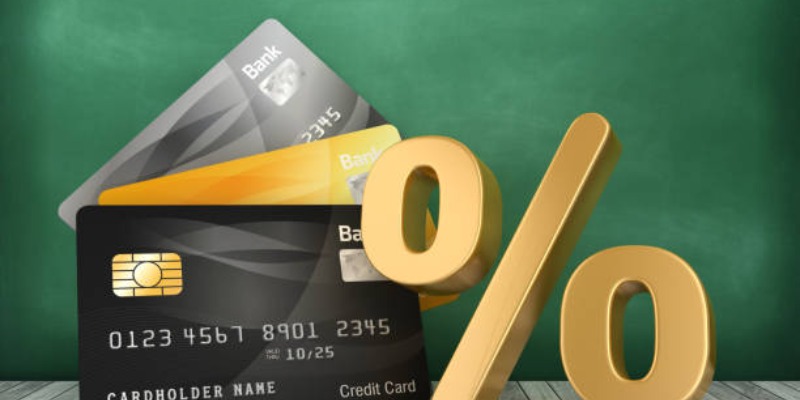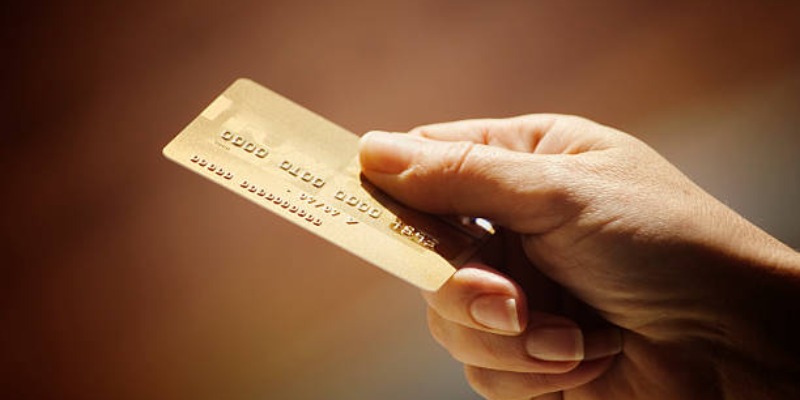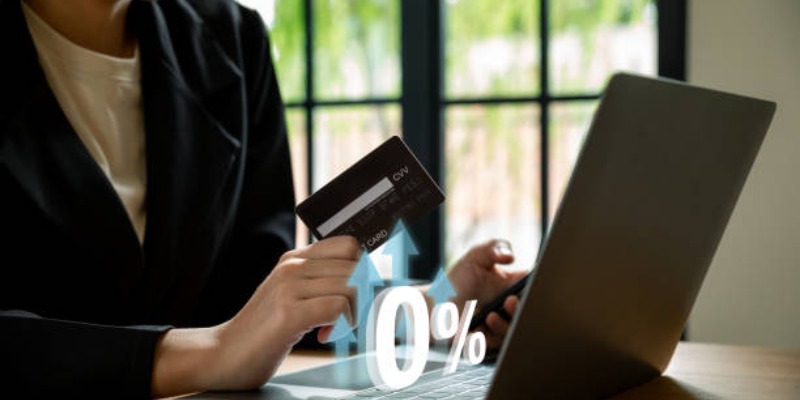Travel
How To Avoid Credit Card Interest Forever
Using a credit card can be fun and helpful. You can buy things now and pay later. However, when you don't pay the full amount on time, interest is applied to your credit card. This is when your bill grows bigger and bigger, even if you stop using the card. The good news? You can avoid credit card interest forever. It's not magic. It's about knowing the rules and using the card smartly. Here are the easiest, most innovative ways to dodge credit card interest for life.
Using a credit card can be fun and helpful. You can buy things now and pay later. However, when you don't pay the full amount on time, interest is applied to your credit card. This is when your bill grows bigger and bigger, even if you stop using the card. The good news? You can avoid credit card interest forever. It's not magic. It's about knowing the rules and using the card smartly. Here are the easiest, most innovative ways to dodge credit card interest for life.
Always Pay Your Balance in Full
This is the number one rule. Every month, your credit card company gives you a bill. That bill shows what you spent. It also shows a "minimum payment," which is the least amount you can pay. However, if you only pay the minimum, the interest is added to the remaining balance of your debt.

To avoid interest altogether, pay off the full balance by the due date. This keeps you in the card's grace period. The grace period is the time between the end of your billing cycle and your due date. Most credit cards give you at least 21 days. During this time, no interest is charged if you pay the entire amount in full.
When you carry a balance, you lose this grace period. That means interest starts adding up every day. And it continues to build until you pay everything off.
Avoid Cash Advances
Cash advances are one of the worst things you can do with a credit card. It may be helpful to take out some quick cash, but it comes with a high price. Most credit cards charge interest on cash advances right away. There's no grace period. That means interest starts accruing the same day you withdraw the money.
Additionally, there's often a fee for withdrawing cash. This fee is added to your balance, which then also gathers interest. So even if you pay off your balance later, you've already paid some extra money.
The best plan is simple: never use your credit card to get cash from an ATM. Use a debit card or find an alternative method to obtain money if you truly need it.
Use Automatic Payments to Stay On Track
One missed payment can ruin your interest-free streak. Even if you forget once, the credit card company might start charging interest. It can also hurt your credit score.
To stay safe, set up automatic payments through your bank or credit card app. You can choose to pay the full balance every month, so you never have to worry about making late payments. If you're nervous about big bills, set a reminder before your due date to help you stay on top of them. Review your card balance and transfer funds as needed.
Late payments also often come with late fees. That’s more money out of your pocket, and it makes it harder to pay off the balance in full. So make paying on time a top habit.

Don’t Spend More Than You Can Afford
This may sound basic, but it's a significant reason why people fall into credit card debt. If you spend more than you can pay off at the end of the month, you start a cycle that's hard to break. Interest starts building, and soon, you're paying more than the item even cost.
To stay interest-free, only use your credit card for purchases you can pay off quickly. Use it like a debit card. If you wouldn’t buy it with the money in your checking account, don’t charge it on your card.
Using your credit card for gas, groceries, and bills can be a great way to earn rewards and build credit—as long as you’re paying in full. But swiping for vacations, electronics, or fancy dinners you can’t afford now means interest later.
Pick a Card with a Long Grace Period
Not all credit cards are the same. Some give you more time to pay off your balance before interest hits. When choosing a card, look for one that offers at least a 21-day grace period. Some cards even provide longer.
Also, make sure your card has no interest on purchases for the first few months. These "introductory offers" can be helpful if you have a big purchase planned—but only if you pay it off before the offer ends. Once the introductory period is over, regular interest rates take effect.
Just remember, this trick only works if you're in complete control of your spending. If you're unsure whether you can pay the balance on time, it's better to wait.
Understand How Interest Is Calculated
Most credit cards charge daily interest on your balance. That means they look at how much you owe each day and apply interest to that amount. The longer you carry a balance, the more interest you will pay.
Some cards even use "average daily balance" methods. That means they calculate the average of what you owe every day and charge interest on that amount. It adds up fast.
Knowing this helps you understand why paying off the balance as soon as possible is the best approach. Even if you can't pay everything all at once, making payments throughout the month can lower the amount of interest you're charged.

Avoid Store Credit Cards
Store credit cards may sound like a good deal. They often offer 0% interest for a few months or a significant discount on your first purchase. But they come with traps.
These cards usually have higher interest rates than regular cards. And if you don’t pay off your balance before the promo ends, some store cards charge you all the interest from the beginning. This is called “deferred interest.”
If you must use a store card, read the fine print. And always pay it off before the special deal ends. Otherwise, the discount you receive at checkout will ultimately be significantly more expensive.
Use Balance Alerts and Budgeting Tools
Many credit card apps let you set balance alerts. These can tell you when you’ve spent a certain amount or when your payment is due. Use them to stay in control.
You can also use budgeting apps to track your spending. This helps you know exactly what you can pay off at the end of the month. It also stops you from getting surprised when the bill arrives.
Being aware of your spending is key to avoiding interest. It puts you in the driver’s seat, not the credit card company.
Stay Away from “Buy Now, Pay Later” Traps
Some credit cards and stores offer payment plans. These might look interest-free, but they come with risks. Missing a payment can result in late fees and potentially even interest. Additionally, having too many of these plans simultaneously can disrupt your monthly budget.
Stick to one rule: if you can’t pay it off now, don’t buy it. Delaying payments doesn’t mean skipping them. And even zero-interest deals can lead to real problems if you’re not careful.
Keep Your Credit Usage Low
Even if you pay off your balance each month, using too much of your credit can hurt your credit score. Credit usage refers to the percentage of your available credit that you're using. Try to keep it below 30%. This means if your limit is \$1,000, don't charge more than \$300.
Why does this matter for avoiding interest? A better credit score can help you get lower interest rates if you ever do need to borrow. It also makes it easier to qualify for cards with better grace periods and rewards.
Smart Habits Keep Interest Away
Avoiding credit card interest forever is all about habits. Paying in full, on time, and only spending what you can afford makes a big difference. Credit cards can be a valuable tool if used correctly. However, if used carelessly, they can become expensive quickly.
With the right moves, you can enjoy the perks of credit without ever paying interest. It's not just possible—it's doable.
Trending










